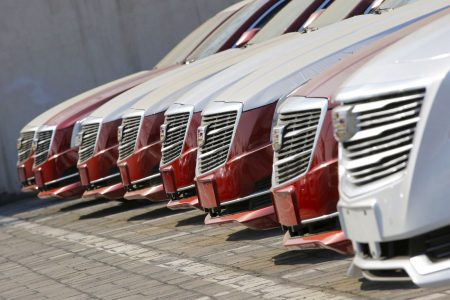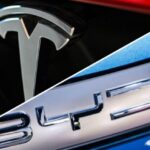December 9, 2018 – General Motors (GM) in the last ten days made what is being called a major pivot in its business model announcing the shutting down of a number of its manufacturing plants throughout North America. Unstated in this is the company’s rethink of what it will become within the next decade. No longer primarily a manufacturer of vehicles, GM intends to become a transportation-as-a-service company.
Ford Motor Company in November notified the world that it was getting into the self-driving taxi business with plans to launch the service in 2021. For Ford the transition to becoming a transportation-as-a-service company is well underway. The company is buying into first-and-last-mile services using a wide range of autonomous and semi-autonomous vehicles providing transit for a number of cities and university campuses.
In both cases, we are witnessing disruptive innovation leading to these multi-billion dollar enterprises making dramatic right-hand turns in the hope that they can avoid being dinosaurs in the 21st century.
The Reinvention of the Electric Vehicle (EV)
The advent of Tesla was just a minor inconvenience to the major automotive manufacturers when Elon Musk began manufacturing electric vehicles (EVs). Musk’s venture was never profitable yet investors put money in to help him realize his EV dream. Today the company produces three different EV models and in its last quarter turned a profit. Tesla is scaling up to build a half-million EVs per year. It is building a recharging infrastructure to support a U.S.-wide network, and it is at the forefront of developing battery technology to eliminate any remaining range anxiety.
Whether Tesla ends up being a long-term success or not, the company is reflective of an industry in disruptive transition for many reasons. The major automotive manufacturers have been remarkably unaware of the implications of climate change to their existing business. They haven’t fully realized the implications of their adoption of artificial intelligence (AI) and autonomy on their business. They have been slow to react to the changing demographics of buyer behaviour.
To describe all of these as the arrival of a perfect storm may appear to be hyperbole, but in fact, it is not. Ford, GM, and certainly Fiat-Chrysler, are facing market dynamics far different than those experienced in the 20th century.
Disruptions in the North American Automotive Industry in the Past
The North American automotive industry was hit by a wave of disruptions in the latter half of the 20th century. First came inexpensive Japanese cars that negatively impacted sales for more than a decade. In their effort to compete the North American Big Three failed to produce products of equal quality at the bottom end of the market. And while they were fighting off competition for lower-priced product, European manufacturers attacked at the high end with very competitive products.
The second 20th-century shock came with the politicization of oil globally followed by concerns about tail-pipe pollution and the growing concern about climate change. Conserving oil and reducing pollution and greenhouse gas (GHG) emissions became major policy initiatives in North America. The price for new vehicles climbed as a variety of new technologies were introduced to deal with rising government regulation in the industry. Higher pricing required the industry to rethink its selling strategies as vehicles became the second largest expenditure for North American families. Overall the number of vehicle units sold or leased by North American manufacturers has slid as prices have risen. Profitability has taken a hit and the industry has reduced its workforce as a result.
The third disruption is one which the industry is experiencing now. The rise of AI in vehicles is leading to partial to fully autonomous transportation. And with autonomy, the old personal transportation model is making way to vehicle sharing. Changing buyer behaviour, pollution, climate change, and AI are all taking at least two of the Big Three down a new road. Hence GM’s ending a number of its name-brand products, the closing of existing factories, and investments in software and service companies.
Transportation-as-a-Service Coming of Age
Julia Steyn, VP of Urban Mobility at GM recently spoke at a technology conference describing society’s move to shareable assets. “People don’t want anymore, to have the dream that their parents had, which is they don’t want half of their paycheque to go to housing and transportation. And so that’s just fundamentally what’s happening in the world.” She continued, “The wasted assets that the car represents when it sits there 95% of the time, idle, is ridiculous. So you want to be able to monetize it.” Steyn and others at GM see car-sharing services as the mainstream future for the company.
And we know GM is not alone because Ford has announced the launching of a car-sharing service involving tens of thousands of vehicles by 2021. The company is making investments in the new vehicle models, software, and services needed to turn this into a brand new for-profit business. That means developing dispatch, routing and payment systems that fit in any city, and for a diverse range of transportation applications. To test the concept Ford is operating an autonomous vehicle delivery service in Miami for Domino and Postmates, and have announced an agreement with Walmart. Ford sees the market for autonomous vehicles providing transportation-as-a-service at more than $330 billion by 2026.
Both GM and Ford intend to launch new model vehicles to fit a number of micro-business service scenarios. And both companies will look very different before the middle of the next decade.









